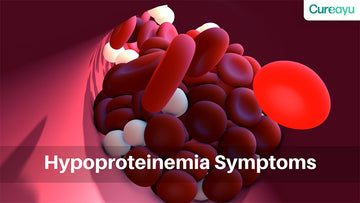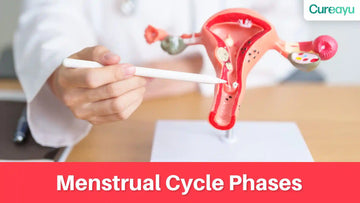Hypoproteinemia is a serious medical condition that often goes unnoticed until symptoms worsen. The term refers to an abnormally low level of proteins in the blood, which plays a vital role in maintaining our overall health. Proteins are essential for body functions like tissue repair, maintaining muscle mass, and regulating fluid balance. When protein levels drop significantly, it can lead to a range of symptoms that affect various body systems.
In this blog, we will explore the meaning of hypoproteinemia, its common symptoms, underlying causes, and preventive measures. Understanding the condition is crucial for early detection and effective treatment. Let’s delve deeper into the nature of hypoproteinemia, including its symptoms, causes, prevention, and treatments.
Also Read: Abscess vs. Cyst: What Is The Difference Between Them, Causes, Symptoms & Treatments
What is Hypoproteinemia?
Hypoproteinemia refers to a condition where the blood contains abnormally low levels of proteins, particularly albumin, the most abundant protein in blood plasma. Proteins are responsible for numerous critical functions, including maintaining osmotic pressure, transporting nutrients, and repairing tissues. When the protein level in the bloodstream drops below the normal range, it leads to various health issues.
The hypoproteinemia meaning is simple: hypo means low, protein refers to the essential molecules in the blood, and emia refers to the condition affecting the blood. This deficiency can result from a variety of causes, including poor dietary intake, liver or kidney disorders, or malabsorption syndromes.
Common Symptoms of Hypoproteinemia
1. Swelling (Edema)
One of the most common symptoms of hypoproteinemia is swelling, also known as edema. When protein levels are low, the body's ability to regulate fluid balance is impaired. This results in fluid leaking into tissues, causing swelling, especially in the feet, legs, and ankles. Severe cases may also involve swelling of the abdomen or face.
2. Muscle Weakness and Wasting
Proteins are crucial for maintaining muscle mass. When protein levels are low, the body may begin breaking down muscle tissues to compensate for the deficiency. This can lead to muscle weakness, difficulty performing everyday tasks, and noticeable muscle wasting over time.
3. Fatigue
Hypoproteinemia often leads to persistent fatigue. Since proteins are vital for energy production, low levels can cause a feeling of constant tiredness and lack of stamina. Individuals may find it hard to stay active or perform routine activities without feeling drained.
4. Dry, Brittle Hair and Nails
Another symptom of hypoproteinemia is dry, brittle hair and nails. Proteins are essential for the growth and repair of hair and nails. Insufficient protein in the blood affects their health, leading to weak hair that breaks easily and nails that are prone to cracking.
5. Delayed Wound Healing
Proteins are a key component in tissue repair. A deficiency can slow the body’s ability to heal wounds. If you notice that cuts, scrapes, or surgical wounds are taking longer than usual to heal, this could be a sign of hypoproteinemia.
Also Read: A Comprehensive Guide to Recognizing the Signs and Navigating Through Menopause
Hypoproteinemia Causes
1. Poor Dietary Intake
The most straightforward cause of hypoproteinemia is inadequate protein intake in the diet. This can result from malnutrition, extreme dieting, or eating disorders like anorexia nervosa. Insufficient protein consumption prevents the body from replenishing necessary protein levels.
2. Liver Disorders
The liver is responsible for producing most of the proteins found in the blood. Conditions like liver cirrhosis or hepatitis can impair the liver's ability to synthesize proteins, leading to hypoproteinemia.
3. Kidney Disease
Kidney disorders, particularly nephrotic syndrome, can cause proteins to leak from the blood into the urine. This excessive protein loss from the body can result in hypoproteinemia.
4. Malabsorption Syndromes
Conditions such as celiac disease or Crohn’s disease affect the small intestine’s ability to absorb nutrients, including proteins. Individuals with these disorders may develop hypoproteinemia due to poor absorption of dietary protein.
5. Chronic Infections or Inflammation
Chronic illnesses like tuberculosis or long-term inflammation can increase the body’s demand for protein. If this increased need is not met through diet or protein synthesis, hypoproteinemia may develop.
Also Read: Everything You Need to Know About Vaginal Yeast Infection
Prevention Tips
-
Maintain a Protein-Rich Diet
Consuming a diet rich in proteins like lean meats, fish, eggs, legumes, and dairy products helps maintain adequate protein levels. -
Monitor Liver and Kidney Health
Regular check-ups with a healthcare provider to monitor liver and kidney function can help detect early signs of diseases that may lead to hypoproteinemia. -
Treat Underlying Conditions
Addressing and managing conditions such as celiac disease, Crohn’s disease, or chronic infections promptly can prevent protein deficiencies from developing. -
Stay Hydrated
Proper hydration supports overall body functions and helps maintain a balanced protein level in the blood.
Hypoproteinemia Treatment
-
Dietary Supplements
If dietary intake is insufficient, protein supplements such as whey protein or amino acid powders can help restore protein levels. -
Intravenous Albumin
In severe cases, doctors may administer albumin intravenously to rapidly increase protein levels and treat symptoms like edema. -
Treat Underlying Medical Conditions
Effective treatment of the root cause, such as kidney disease or liver dysfunction, is crucial for resolving hypoproteinemia. -
High-Protein Diet
For milder cases, simply increasing protein intake through dietary changes can restore normal levels of proteins in the blood. -
Medications
In some cases, medications such as diuretics may be prescribed to manage symptoms like swelling or to treat the underlying condition causing protein loss.
Also Read: Why Is My Period Late? Understanding the Causes and What to Do Next
Conclusion
Hypoproteinemia is a serious condition that can have a profound impact on your overall health. From swelling and muscle weakness to fatigue and delayed wound healing, the symptoms can significantly affect your quality of life. Recognizing the early signs is crucial for timely diagnosis and treatment. By understanding the hypoproteinemia meaning, you can take steps to prevent it by ensuring adequate protein intake and addressing any underlying health issues promptly. With appropriate medical intervention and lifestyle changes, individuals with hypoproteinemia can recover and lead healthier lives. Staying informed and taking preventive measures is key to managing this condition effectively.












